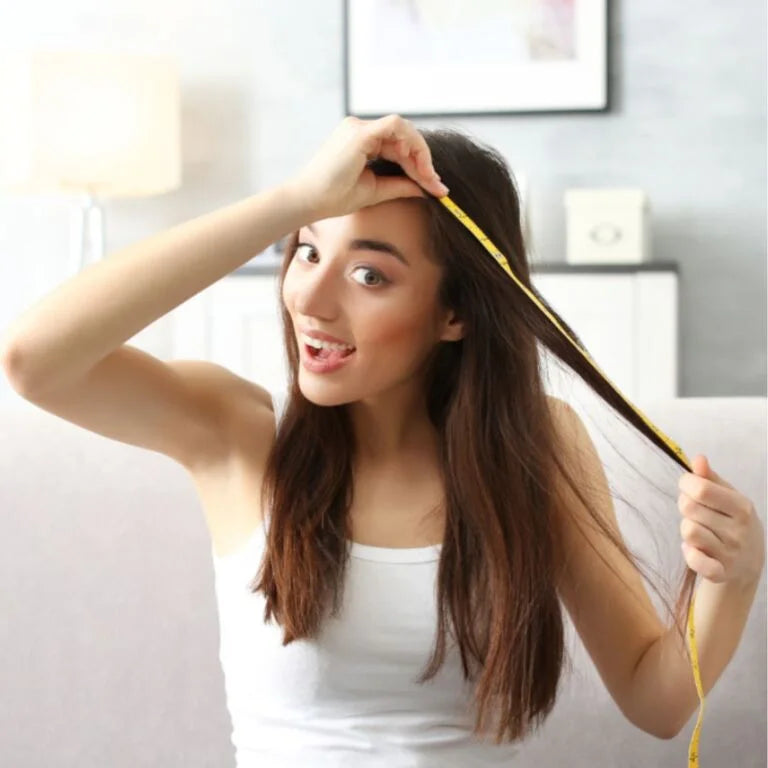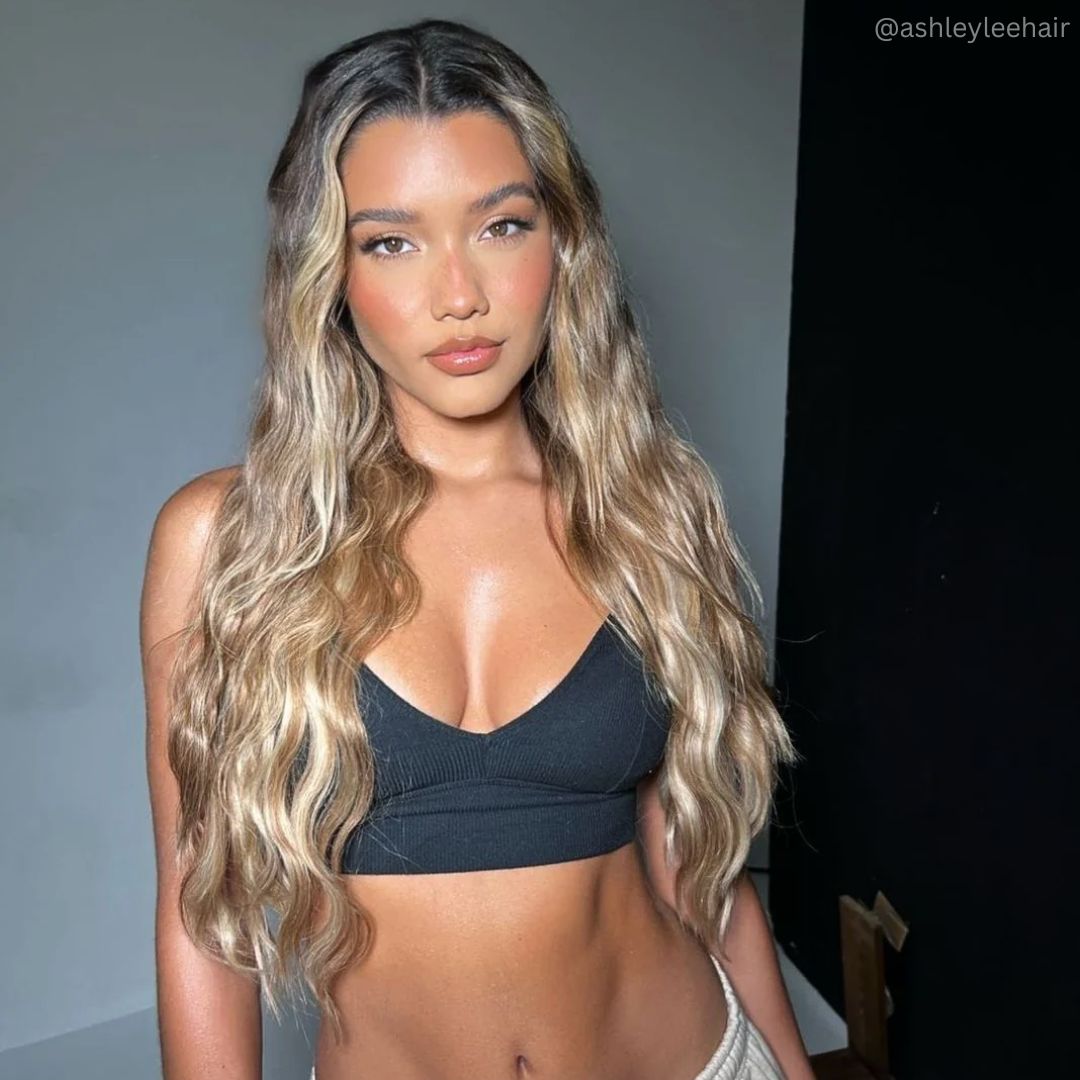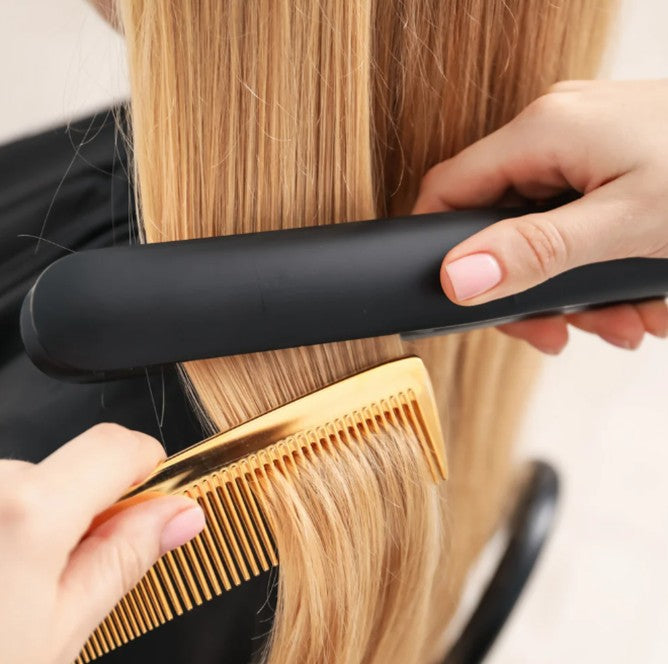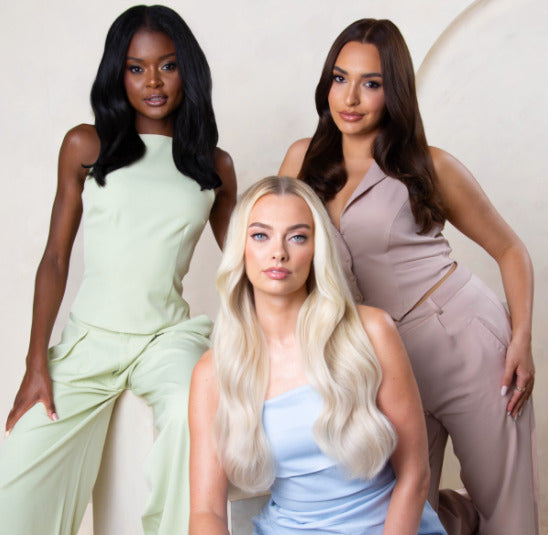10 Protective Hairstyles for Curly Hair: 3B to 4C
by BRENDA L. / JUN 14, 2022

Reading Time: 8 Minutes
Index
Elevate your curly hair game with Cliphair's guide to 10 protective hairstyles (3B to 4C). We share expert tips on keeping your curls healthy and stylish while exploring protective styles that seamlessly integrate with hair extensions. Embrace the beauty of versatile and protected curls with Cliphair!
Have you ever wondered what happens to your hair when you’re sleeping? To name some: friction, tangling, scratching, sometimes even pulling - that’s right! All that love and care you put in your hair in the morning can only do so much if your night routine is non-existent. And when you’re wearing hair extensions – semipermanent or permanent for example – it is known that you will need to pay a little more attention to anything that happens to your hair in order to preserve them.
You may be thinking: “Okay, but what do I have to do?” – well, the answer is pretty simple. According to your preferred styles, here’s everything you need to know on how to protect curly hair at night and how to sleep comfortably with hair extensions. Remember, incorporating heat protection into your nightly routine can make a significant difference in preserving your curls.
Protective Hairstyles For Curly Hair: Haircare Night Routine
Healthy curly hair is naturally textured and bouncy. Before we talk about protective hairstyles for curly hair more in detail, let’s discuss your haircare night routine. Do you moisturize your hair at night? First things first, never ever sleep with wet hair when possible: although it’s “okay” to sleep with wet curly hair when done safely, sleeping with wet hair can lead to many problems for your scalp - such as fungal infections, skin irritation and itchiness, dryness, and dandruff. As if this was not enough to convince you to stop sleeping with wet hair, I should also mention that it promotes hair breakage. Ideally, you should let your hair air-dry (to avoid heat damage), then apply your overnight hair serum or hair oil, massage your scalp, and go to bed. Alternatively, you could try plopping your hair – a technique to dry your wet curls.
Protective Hairstyles For Curly Hair: Plopping Curly Hair
So, if going to sleep with wet hair is a no-no and you want to avoid heat and mechanical damage, what is the best way to dry your hair? Plopping sure is one of the best techniques out there. Here’s everything you need to know on how to plop your hair!
How To Plop Curly Hair?
Plopping is a heatless drying technique for curly hair that uses a cotton T-shirt (although you can also use a cotton pillowcase of a microfiber towel) to dry your wet curls in a self-contained heap on top of your head. Ideally, you would use a soft cotton fabric long-sleeved t-shirt to do this. To give you an idea of what the process looks like, check out this TikTok by marisascurls:
@marisascurls How to plop curly hair #plopping #plop #plopcurls #ploppingtutorial #ploppingmycurls #curls #curlyhair #curlyhairtutorial #curlytutorial #curlytips ♬ virgo - Jadu Jadu
What’s the difference between hair plopping and using a twisted towel?
Twisting your hair in a towel can be a dangerous business, especially for dry ends – curly hair specifically suffers a lot from this drying technique, as they lose their natural bounce and corkscrew shape. The twist, in fact, stretches your hair and promotes frizz as regular towels are not soft enough to be stroking against your hair for prolonged amounts of time with no damage.
Plopping prevents all of this by keeping your curls compact on top of your head, giving volume to your roots and keeping your hair cuticle smooth thanks to the soft cotton fabric.
Now, let’s talk about your bed: have you ever thought of investing in a new pillowcase?
Protective Hairstyles For Curly Hair: How To Sleep With Curly Hair
Silk or satin pillowcases (and, why not? Even coordinated bedsheets) not only feel heavenly on your hair and skin: the smooth texture prevents hair breakage caused by friction (something that can happen with cotton pillowcases, which are rougher in texture). What's more? Ah, yes, sleeping on a silk pillowcase can also help prevent wrinkles and the build-up of dust mites, fungus, mould, and a whole lot of other common allergens.

Last but not least, using a sleep cap or bonnet is also a good investment. Not everyone feels comfortable in sleeping with something covering their head, but if you’re not bothered by the idea or simply would like to try it, a silk or satin sleep cap could be that extra measure that completely changes your hair game whilst you get your beauty sleep. If your hair goes from wavy to curly, a sleeping satin cap will help you minimize frizz too.
Protective Hairstyles For Sleeping: What is a protective hairstyle?
A protective hairstyle is a hairstyle that tucks the hair away and keeps it free from manipulation. It also prevents it from tangling during your sleep and saves it from friction. If you keep your hair long, it is extremely important that you wear them in protective natural hairstyles to bed, in order to avoid breakage and split ends. Bonus points: did you know that many protective hairstyles for sleeping are also heatless overnight styling methods? When tucking your hair in or braiding always remember to avoid wearing hairstyles too tightly as that may cause traction alopecia if worn for extended periods of time, and the pulling may irritate your scalp – leading to flaky scalp and itchiness. Ready to go? Let’s explore the best protective hairstyles for straight to wavy hair.
Protective Hairstyles For Sleeping: The Two-Strand Twists
This is the most basic braid you could imagine, obtained by intertwining two separate strands of hair and tied at the end with a hair tie or, in some cases, a ribbon. This can be done on wet or dry hair, although if used on damp hair your curls will turn out tighter. This hairstyle is particularly recommended for kinky curls and coils.
Protective Hairstyles For Sleeping: The The High Bun
One of the easiest protective hairstyles for curly hair that works: gather your hair loosely and make sure you avoid pulling on your edges too tightly.
Protective Hairstyles For Sleeping: The Pineapple
This is an all-time favourite for many curly-haired people out there. To pineapple your hair, simply flip your dry hair over and secure it in a loose ponytail, so high that it stands up on the frontal part of your head (rather than on the back). To avoid mechanical stress on your hair, I always recommend using a fabric-covered hair tie or a soft fabric scrunchie.
Protective Hairstyles For Sleeping: Multiple Pineapples
This is an alternative for short-haired people that still wants to try the pineapple method but, for obvious reasons, cannot pull all of their hair up on the front; dividing your hair into smaller sections and pulling them up in two or three mini pineapples can solve the issue until your hair reaches the desired length to resort to a single one.
Protective Hairstyles For Sleeping: The Top Knot
Similar to the high bun, this method requires you to pack all your hair to the top centre, then twist the hair (like you would in a ponytail twist). This style is great to retain moisture and preserve volume.
Protective Hairstyles For Sleeping: The Crown Braid
During Medieval times, hair was just as important as your dress code. Back then fashion wasn’t just a caprice, but a whole presentation of one’s self in terms of social status, financial situation, and respectability. Given the prejudice about certain hairstyles being associated with heretics and witchcraft and the general hygienic situation, braided up-dos were between the preferred options for many women. This is how the crown braid came to be! Nowadays, the crown braid is an elegant protective hairstyle to keep your locks safe whilst making you look fresh and youthful.
Protective Hairstyles For Sleeping: The Loose Plait
Probably the easiest, effortless braiding style out there. A loose plait is a simple hairstyle to keep your locks all in one place, although this doesn’t offer much protection to your ends unless you tuck them in with a second hair tie.
Protective Hairstyles For Sleeping: The Twisted Space Buns
Space buns are a variation of the Japanese hairstyle known as odango, a generic term that indicates a different number of hair buns. The name comes from Princess Leia’s hairstyle in Star Wars, gaining popularity in the late 70s. In Chinese culture, the bun is a gender-neutral hairstyle; in western cultures, this hairstyle was adopted by the populations that the Romans defined as “barbarian”, such as Goths, Vandals, and Lombards. Space buns are usually two smaller buns sitting on top of your head. As a daytime look, they are often worn with tendrils hanging down one’s cheekbones. As a protective hairstyle, twisted space buns are a variation of the top knot – where your hair is divided into two sections and the hair is twisted before getting tucked in with a hair tie.
Protective Hairstyles For Sleeping: French Braids
Despite its name, the origins of the French braid are uncertain and have been widely disputed and discussed over the years – Greeks and Africans are often credited as the first cultures to use this braiding technique, with the earliest evidence coming from Algeria and it dates back to almost 6000 years ago. In Greek art, this style of braid is featured on kouros statues. Similar to the classic plait, the French braid starts closer to your scalp and goes down adding pieces of hair to its body on its way to the nape of your neck.
Protective Hairstyles For Sleeping: Dutch Braids
Similar to the French braid and often referred to as “reverse French braid”, the Dutch braid crosses its sections underneath each other instead of over one other. The Dutch braid is one of the most trendy traditional hairstyles with the French braid.
Protect your curls and keep them looking fabulous with Cliphair's range of hair care products designed specifically for curly hair. Explore our collection and embrace your natural curls with confidence. Shop now and keep your curls looking their best!
Conclusion
Mastering protective hairstyles for curly hair is essential for maintaining the health and vitality of your curls. By incorporating these 10 styles into your routine, you can protect your curls from damage while showcasing their natural beauty. To explore more options for styling and caring for your curly hair, visit Cliphair's collection of hair extensions and accessories. Elevate your curls and protect them with Cliphair's premium products today!
FAQs
How can I protect my hair extensions while sleeping?
To protect your hair extensions while sleeping, consider using a silk or satin pillowcase to reduce friction and prevent tangling. You can also tie your hair in a loose braid or bun to minimise movement and friction during sleep.
Can these protective hairstyles help prevent damage to my curly hair?
Yes, protective hairstyles can help minimize damage to curly hair by reducing friction, preventing tangling, and retaining moisture. They create a barrier that shields your curls from environmental stressors and manipulation, promoting healthier hair over time.
How long can I wear these protective hairstyles?
The duration for wearing protective hairstyles depends on various factors such as your hair's health, the chosen style, and your lifestyle. While some styles can be worn for a few days to a week, others may last longer with proper maintenance. It's essential to monitor your hair's condition and remove the style if you notice any signs of discomfort or damage.
Looking for flawless, salon-worthy hair without breaking the bank? At Cliphair, we’ve got you covered with luxurious clip in hair extensions for quick transformations and permanent hair extensions for long-lasting glam. Extensions require special care and maintenance to preserve their quality, which is why we have all the top-notch hydrating haircare products needed to keep your style on point.
Need the perfect shade? Browse our full range of human hair extensions in over 70 rich, silky shades or check out our FREE Express Color Match Service to ensure a seamless blend every time.






